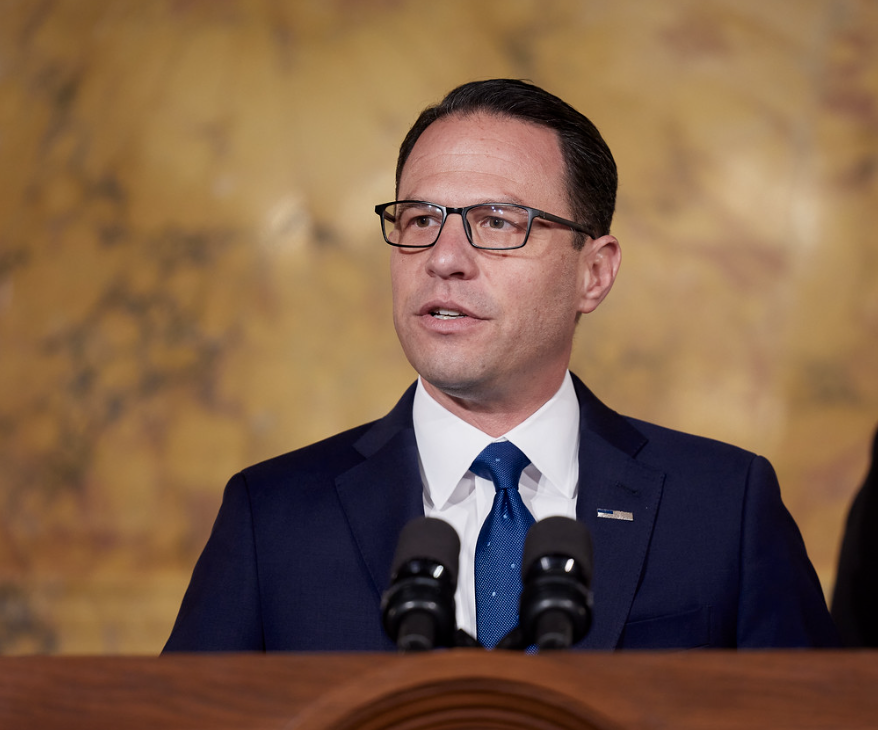Failed initiatives and misguided mandates leave Pennsylvania residents footing the bill for unreliable power.
From the energy crisis of the Carter administration to President Joe Biden’s policies targeting the oil and gas industry, Democratic approaches to energy have consistently fallen short. Now, Gov. Josh Shapiro is continuing the legacy of disastrous energy policies.
In November 2023, the Pennsylvania Commonwealth Court ruled the Regional Greenhouse Gas Initiative (RGGI)—a failed program designed to cap and reduce carbon emissions—levied an unconstitutional tax on Pennsylvania energy consumers. The ruling effectively prevented Pennsylvania from participating in RGGI. But instead of complying with the court’s order and working with the legislature to recover the estimated $7 billion lost in private investment tied to the initiative, Shapiro appealed the ruling to the Pennsylvania Supreme Court, where it is still unresolved.
In the meantime, Shapiro has developed two more radical ideas, drawing sharp criticism from energy stakeholders and even members of his own party. His first proposal, the Pennsylvania Reliable Energy Sustainability Standard (PRESS), imposes strict mandates on energy sourcing. The mandates—centered on intermittent, unreliable and unproven energy generation sources—raise significant concerns. Renewable resources like wind and solar undoubtedly have a place within a diversified energy portfolio, but requiring their use without guarantees of reliable, scalable, and on-demand output jeopardizes economic and energy stability for residents of the Commonwealth. A balanced approach that considers the practical realities and limitations of each energy source is crucial to safeguarding the interests of both individuals and businesses in the region.
The governor’s second energy proposal is the Pennsylvania Climate Emissions Reduction (PACER) Initiative, a cap-and-trade program that mimics RGGI. PACER would require taxpayers to subsidize nonreliable sources of energy in addition to paying higher energy costs. Worse still, the bill’s vague language raises concerns about whether Pennsylvania taxpayers would subsidize in-state nuclear generation despite already allowing subsidies for out-of-state nuclear energy.
Both plans would pass the financial burden of those regulations onto electric consumers and ratepayers in Pennsylvania, particularly hurting low-income residents who already struggle to afford their energy bills.
These proposals by Shapiro faced such significant opposition that House Democratic committee chairs refused to advance the bills last session.
After four years of rapidly rising inflation and the financial fallout from RGGI, Pennsylvanians now face even higher electric bills in 2025. Attempting to shift the blame for this unmitigated failure, Shapiro filed a frivolous lawsuit against PJM Interconnection, the mid-Atlantic’s largest electricity wholesaler. He claims requiring PJM to lower its price cap—the maximum rate they can charge per unit—will address the rising electricity prices. However, the governor’s complaint fails to address the fundamental drivers of the escalating costs. The real issue lies in surging energy demand and the premature decommissioning of power plants—consequences directly linked to initiatives like RGGI. Moreover, PJM has been sounding the alarm for over two years about the potential for power shortages in certain regions during periods of peak demand.
This looming possibility has been exacerbated primarily by state and federal policies that Shapiro himself has championed. His inability to take responsibility for his shortcomings is a disservice to the people he is supposed to serve.
The livelihood of Pennsylvania is reliant on the state’s energy economy. A robust, dependable, and economically viable energy landscape across the commonwealth means taking a comprehensive approach to power generation and distribution. Harnessing a diverse array of resources, from traditional fossil fuels to renewable alternatives, is paramount in ensuring a resilient and sustainable energy infrastructure.
As the Biden administration’s policies of reliance on foreign oil come to a close, Republicans have a chance to lead with a bold, balanced energy plan that prioritizes affordability, reliability and economic growth for all Americans.

